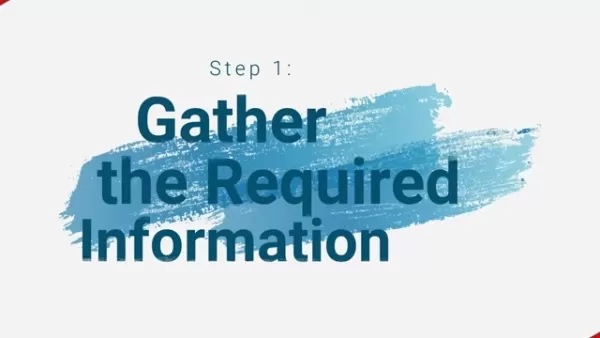AI Calling: Navigating Legal Issues and Compliance in 2025
Navigating the legal intricacies of AI calling can feel like walking through a minefield, but it's crucial for businesses eager to harness this cutting-edge technology. As we roll into 2025, AI calling remains a potent tool, yet the importance of strict compliance with regulations cannot be overstated. This article dives into the essential legal considerations for AI calling, covering the Telephone Consumer Protection Act (TCPA), Federal Communications Commission (FCC) guidelines, and the necessity of obtaining explicit consent. We'll outline actionable steps businesses can take to ensure their AI calling practices are compliant, helping to dodge hefty fines and legal pitfalls. Staying informed and compliant is your key to unlocking the full potential of AI in your communication strategy.
Key Points
- AI calling is legal, but you must comply with TCPA and FCC regulations.
- Getting prior express consent before starting any AI calls is non-negotiable.
- Always clearly disclose your company's identity right at the start of the AI call.
- Offer an easy way for people to opt out and respect Do Not Call (DNC) requests.
- Inbound marketing can be a smart way to gather consent for AI calling.
- Partnering with compliant AI calling agencies can help navigate the legal landscape.
- Keep meticulous records of all consent and compliance efforts.
Understanding the Legal Landscape of AI Calling
The Legality of AI Calling in 2025
Is AI calling legal? Yes, but with a big asterisk. As technology evolves, so do the rules that govern its use, especially in communication. In 2025, AI calling is still on the table, but you need to be on top of the legal framework set by bodies like the FCC and the TCPA. These regulations are all about protecting consumers from unwanted solicitations and promoting ethical communication practices. Businesses that don't play by these rules risk not just fines but also damage to their reputation. Understanding these legal boundaries isn't just about dodging penalties; it's about building trust with your audience and fostering sustainable business practices. Embracing compliance from the get-go lets you leverage AI calling effectively and ethically, driving positive results while respecting consumer rights. This means staying updated on the latest regulatory changes and weaving compliance measures into your AI calling strategy. With the right approach, AI calling can be a powerful tool for engagement, lead generation, and customer service, all while staying within the law and honoring your customers' preferences.

However, the landscape has shifted, making AI calling a bit trickier to navigate.
TCPA and FCC Regulations: What You Need to Know
The TCPA and FCC are the gatekeepers of the legal landscape for AI calling. The TCPA, established back in 1991, puts the brakes on telemarketing practices and the use of automated telephone equipment. It requires businesses to get prior express consent before making calls using an autodialer or artificial voice.

The FCC, responsible for enforcing the TCPA, has fine-tuned these rules, especially for AI-driven communication. Recent rulings stress the need for businesses to keep detailed records of consent and provide clear ways for people to opt out. These regulations aim to shield consumers from unwanted calls and ensure businesses respect their communication preferences. Grasping the specifics of both the TCPA and FCC is vital for crafting a compliant AI calling strategy. This includes setting up systems to manage consent, honoring DNC requests, and regularly reviewing your practices to align with changing regulations. By putting compliance first, you can reduce legal risks and keep a positive relationship with your audience, building trust and setting the stage for long-term success.
The Importance of Prior Express Consent
Prior express consent is the bedrock of legal AI calling. This means getting a clear, unmistakable agreement from consumers before any AI-driven communication kicks off. This consent needs to specify the type of communication (e.g., AI calling, AI texting) and the purpose (e.g., marketing, customer service). The FCC insists that businesses keep records of consent, noting the date, time, and method of acquisition. Failing to secure this consent can lead to hefty penalties under the TCPA.

To stay compliant, businesses should set up robust systems for capturing and managing consent. This might involve using online forms, email confirmations, or other methods that leave a clear audit trail. Plus, businesses must respect consumers' right to withdraw consent at any time and promptly honor opt-out requests. By making prior express consent a core part of your AI calling strategy, you can build trust with your audience and minimize the risk of legal challenges.
Recent Law Changes Impacting AI Calling
The rules around AI calling are always shifting, with recent changes affecting how businesses can use this technology.

One big change is the increased scrutiny of autodialer technology and what counts as an autodialer under the TCPA. The FCC has clarified that any equipment that can store or produce numbers and dial them automatically might fall under TCPA regulations. This broad definition has implications for businesses using AI-powered calling platforms, requiring them to ensure their systems comply with consent requirements. There's also a growing focus on transparency and disclosing AI's involvement in communication. Consumers have a right to know if they're talking to a human or an AI system. Businesses must clearly identify themselves and disclose the use of AI at the start of any call or text message. Keeping up with these changes is crucial for maintaining compliance and adjusting your AI calling strategy accordingly.
Practical Steps for Ensuring AI Calling Compliance
Implementing a Compliant AI Calling Strategy
Creating a compliant AI calling strategy is a multi-layered process that involves weaving legal considerations into every part of the communication process. Start by thoroughly assessing your current AI calling practices to spot any compliance gaps. Set up robust systems for capturing, storing, and tracking consent records accurately. Train your staff and AI agents on TCPA and FCC regulations, highlighting the importance of respecting consumer preferences. Develop clear and concise scripts for AI calls and text messages, making sure they disclose your company's identity and provide opt-out options.

Regularly monitor your AI calling campaigns for compliance, auditing consent records, and addressing any consumer complaints promptly. By prioritizing compliance and taking these practical steps, you can build a sustainable AI calling strategy that drives positive results while maintaining ethical communication standards. This proactive approach not only reduces legal risks but also fosters trust and goodwill with your audience, contributing to long-term business success.
Strategies for Obtaining Consent for AI Calling
Getting consent for AI calling requires a strategic approach that puts transparency and respect for consumer preferences front and center. Here are some effective ways to gather consent legally and ethically:
- Website Forms: Include clear and prominent consent checkboxes on your website forms, specifying that consumers agree to be contacted via AI calling or AI texting for marketing or customer service purposes.
- Email Marketing: Use email marketing to reach out to existing customers and subscribers, asking for their consent to receive AI-driven communications. Make sure you provide a clear opt-in mechanism and comply with CAN-SPAM Act regulations.
- Inbound Marketing: Focus on creating valuable content that draws consumers to your brand and encourages them to proactively request information. This inbound approach can naturally lead to obtaining consent for AI calling.
- Home Shows and Events: When collecting leads at home shows or other events, use a well-designed form that includes all the required information, as well as a clear checkbox to gather consent to contact consumers using AI calling.

- Social Media Lead Forms: Use lead forms on platforms like Facebook, clearly disclosing how the information will be used, and obtain consent to contact potential customers with AI-driven marketing and communications.
Remember to meticulously document all consent records, including the date, time, and method of consent. By adopting these strategies, you can build a foundation of trust with your audience and ensure that your AI calling efforts are both compliant and effective.
Leveraging Compliant AI Calling Agencies
Navigating the complex legal landscape of AI calling can be overwhelming. Partnering with a compliant AI calling agency can offer valuable expertise and support, helping you minimize legal risks and maximize the effectiveness of your communication strategies. Compliant AI calling agencies have a deep understanding of TCPA and FCC regulations, as well as best practices for obtaining consent, managing opt-outs, and maintaining data privacy. They can help you develop and implement AI calling campaigns that are fully compliant with all applicable laws. Plus, compliant agencies often provide access to advanced technology solutions that automate compliance tasks, such as consent management, DNC list scrubbing, and call recording. By working with a reputable agency, you can focus on achieving your business goals while ensuring that your AI calling practices are ethical, responsible, and legally sound.
How to Make Your AI Calling Compliant
Obtain Prior Express Consent
Before kicking off any AI call, make sure you have obtained clear and unambiguous consent from the recipient. This consent should specify that they agree to be contacted via AI for marketing or communication purposes.
Company Name
Make sure to include your company's name right at the start of the initial message.

Inbound Marketing
Inbound marketing is a fantastic way to gather consent and engage with your audience.

Send Out Emails
Send out emails to those who have given their consent, but only if you have their permission.

Add Call Back Numbers
Include call back numbers, which could be an AI inbound number.
Facebook Ads
Use Facebook Ads, and if the lead form ends with "call us now," that can be considered consent.
Add a Checkbox to the Form
When creating the AI form, include a checkbox that states, "You agree to be contacted using AI calling, AI texting for marketing and communication purposes."

Offer an Opt-Out
Always offer an opt-out to potential customers who do not want to be contacted again.
Pricing of Solutions for Compliant AI Calling
Cookie Monster
Cookie Monster is a helpful tool for getting compliant leads. Check out CookieMonster.ai and see what they offer!
Pros and Cons of Implementing AI Calling
Pros
- AI can automatically remove people from the campaign who have expressed a desire to be removed.
- It can lower costs and streamline the calling process.
Cons
- TCPA and FCC compliance is complex and constantly evolving.
- Failing to obtain proper consent can result in hefty fines.
- Consumers may react negatively to AI-driven communication if not handled transparently.
- Outbound calling without consent is not legal.
Core Features for Compliant AI Calling
Air AI
One of the benefits of using Air AI is that they have a system designed to keep everything compliant. They make sure to scrub the DNC list and automatically remove anyone who requests to be put on the do not call list, ensuring no further calls are made to those individuals.
Use Cases of Compliant AI Calling
In Solar Companies
For solar companies, especially those in insurance, it's crucial to introduce yourself clearly at the start of the call, saying something like, "Hey, this is Jon from ABC Insurance."

FAQ
Is AI calling truly legal in 2025?
Yes, AI calling is legal in 2025, as long as you strictly adhere to TCPA and FCC regulations, particularly regarding prior express consent.
What is the impact of recent law changes on AI calling?
Recent law changes have ramped up scrutiny on autodialer technology and emphasized the need for transparency and disclosure of AI involvement in communication.
How can I obtain valid consent for AI calling?
Implement clear consent mechanisms on website forms, leverage email marketing, adopt inbound marketing strategies, and keep meticulous records of all consent obtained.
How much will I be fined if caught in violation of the laws?
There was a fine in August 2024 where companies calling leads without consent were hit with a 300 million dollar penalty.
Related Questions
What is Air AI and what does it do?
Air AI is an excellent system that helps keep everything compliant. They not only run through the DNC list but also ensure that if someone requests to be added to the do not call list, they are automatically removed from that campaign, preventing any further calls.
What does Prior Express Consent Mean?
It means that on your emails, or let's say you're at home shows with a form, you need to get clear, unmistakable agreement from consumers before starting any AI-driven communication.
Related article
 Master Emerald Kaizo Nuzlocke: Ultimate Survival & Strategy Guide
Emerald Kaizo stands as one of the most formidable Pokémon ROM hacks ever conceived. While attempting a Nuzlocke run exponentially increases the challenge, victory remains achievable through meticulous planning and strategic execution. This definitiv
Master Emerald Kaizo Nuzlocke: Ultimate Survival & Strategy Guide
Emerald Kaizo stands as one of the most formidable Pokémon ROM hacks ever conceived. While attempting a Nuzlocke run exponentially increases the challenge, victory remains achievable through meticulous planning and strategic execution. This definitiv
 AI-Powered Cover Letters: Expert Guide for Journal Submissions
In today's competitive academic publishing environment, crafting an effective cover letter can make the crucial difference in your manuscript's acceptance. Discover how AI-powered tools like ChatGPT can streamline this essential task, helping you cre
AI-Powered Cover Letters: Expert Guide for Journal Submissions
In today's competitive academic publishing environment, crafting an effective cover letter can make the crucial difference in your manuscript's acceptance. Discover how AI-powered tools like ChatGPT can streamline this essential task, helping you cre
 US to Sanction Foreign Officials Over Social Media Regulations
US Takes Stand Against Global Digital Content Regulations
The State Department issued a sharp diplomatic rebuke this week targeting European digital governance policies, signaling escalating tensions over control of online platforms. Secretary Marco
Comments (11)
0/200
US to Sanction Foreign Officials Over Social Media Regulations
US Takes Stand Against Global Digital Content Regulations
The State Department issued a sharp diplomatic rebuke this week targeting European digital governance policies, signaling escalating tensions over control of online platforms. Secretary Marco
Comments (11)
0/200
![DouglasMitchell]() DouglasMitchell
DouglasMitchell
 September 29, 2025 at 2:30:35 AM EDT
September 29, 2025 at 2:30:35 AM EDT
La regulación de las llamadas con IA es un tema candente 🔥. Me preocupa cómo equilibrar la innovación con la privacidad del usuario, sobre todo con leyes como el GDPR cada vez más estrictas. ¿Alguien sabe si habrá sanciones más duras en 2025?


 0
0
![KevinMartínez]() KevinMartínez
KevinMartínez
 September 1, 2025 at 4:30:32 PM EDT
September 1, 2025 at 4:30:32 PM EDT
Die rechtlichen Herausforderungen von KI-Anrufen werden 2025 sicher noch komplexer. Hoffentlich gibt´s klare Leitlinien, sonst landet jeder zweite Anbieter vor Gericht... 🤯 Wäre doch absurd, wenn wir am Ende mehr für Anwälte als für die Technik ausgeben!


 0
0
![CharlesYoung]() CharlesYoung
CharlesYoung
 August 9, 2025 at 9:00:59 PM EDT
August 9, 2025 at 9:00:59 PM EDT
¡Qué tema tan complejo! La verdad, navegar por las leyes de la IA en 2025 parece un rompecabezas imposible. Me pregunto si las empresas realmente están preparadas para cumplir con tantas regulaciones sin tropezar. 🤔


 0
0
![ThomasGreen]() ThomasGreen
ThomasGreen
 August 9, 2025 at 7:01:00 PM EDT
August 9, 2025 at 7:01:00 PM EDT
AI calling sounds like a game-changer, but all these legal hoops make my head spin! 🥴 Anyone else think it’s a bit like taming a wild beast?


 0
0
![WillLopez]() WillLopez
WillLopez
 August 4, 2025 at 2:48:52 AM EDT
August 4, 2025 at 2:48:52 AM EDT
AI calling sounds like a game-changer, but all these legal hurdles make my head spin! 🤯 Anyone else worried about how companies will balance innovation with compliance in 2025?


 0
0
![JuanEvans]() JuanEvans
JuanEvans
 July 23, 2025 at 12:59:29 AM EDT
July 23, 2025 at 12:59:29 AM EDT
AI calling sounds like a game-changer, but all these legal hurdles make me wonder if it’s worth the hassle. Are companies even ready for this compliance maze? 🤔


 0
0
Navigating the legal intricacies of AI calling can feel like walking through a minefield, but it's crucial for businesses eager to harness this cutting-edge technology. As we roll into 2025, AI calling remains a potent tool, yet the importance of strict compliance with regulations cannot be overstated. This article dives into the essential legal considerations for AI calling, covering the Telephone Consumer Protection Act (TCPA), Federal Communications Commission (FCC) guidelines, and the necessity of obtaining explicit consent. We'll outline actionable steps businesses can take to ensure their AI calling practices are compliant, helping to dodge hefty fines and legal pitfalls. Staying informed and compliant is your key to unlocking the full potential of AI in your communication strategy.
Key Points
- AI calling is legal, but you must comply with TCPA and FCC regulations.
- Getting prior express consent before starting any AI calls is non-negotiable.
- Always clearly disclose your company's identity right at the start of the AI call.
- Offer an easy way for people to opt out and respect Do Not Call (DNC) requests.
- Inbound marketing can be a smart way to gather consent for AI calling.
- Partnering with compliant AI calling agencies can help navigate the legal landscape.
- Keep meticulous records of all consent and compliance efforts.
Understanding the Legal Landscape of AI Calling
The Legality of AI Calling in 2025
Is AI calling legal? Yes, but with a big asterisk. As technology evolves, so do the rules that govern its use, especially in communication. In 2025, AI calling is still on the table, but you need to be on top of the legal framework set by bodies like the FCC and the TCPA. These regulations are all about protecting consumers from unwanted solicitations and promoting ethical communication practices. Businesses that don't play by these rules risk not just fines but also damage to their reputation. Understanding these legal boundaries isn't just about dodging penalties; it's about building trust with your audience and fostering sustainable business practices. Embracing compliance from the get-go lets you leverage AI calling effectively and ethically, driving positive results while respecting consumer rights. This means staying updated on the latest regulatory changes and weaving compliance measures into your AI calling strategy. With the right approach, AI calling can be a powerful tool for engagement, lead generation, and customer service, all while staying within the law and honoring your customers' preferences.

However, the landscape has shifted, making AI calling a bit trickier to navigate.
TCPA and FCC Regulations: What You Need to Know
The TCPA and FCC are the gatekeepers of the legal landscape for AI calling. The TCPA, established back in 1991, puts the brakes on telemarketing practices and the use of automated telephone equipment. It requires businesses to get prior express consent before making calls using an autodialer or artificial voice.

The FCC, responsible for enforcing the TCPA, has fine-tuned these rules, especially for AI-driven communication. Recent rulings stress the need for businesses to keep detailed records of consent and provide clear ways for people to opt out. These regulations aim to shield consumers from unwanted calls and ensure businesses respect their communication preferences. Grasping the specifics of both the TCPA and FCC is vital for crafting a compliant AI calling strategy. This includes setting up systems to manage consent, honoring DNC requests, and regularly reviewing your practices to align with changing regulations. By putting compliance first, you can reduce legal risks and keep a positive relationship with your audience, building trust and setting the stage for long-term success.
The Importance of Prior Express Consent
Prior express consent is the bedrock of legal AI calling. This means getting a clear, unmistakable agreement from consumers before any AI-driven communication kicks off. This consent needs to specify the type of communication (e.g., AI calling, AI texting) and the purpose (e.g., marketing, customer service). The FCC insists that businesses keep records of consent, noting the date, time, and method of acquisition. Failing to secure this consent can lead to hefty penalties under the TCPA.

To stay compliant, businesses should set up robust systems for capturing and managing consent. This might involve using online forms, email confirmations, or other methods that leave a clear audit trail. Plus, businesses must respect consumers' right to withdraw consent at any time and promptly honor opt-out requests. By making prior express consent a core part of your AI calling strategy, you can build trust with your audience and minimize the risk of legal challenges.
Recent Law Changes Impacting AI Calling
The rules around AI calling are always shifting, with recent changes affecting how businesses can use this technology.

One big change is the increased scrutiny of autodialer technology and what counts as an autodialer under the TCPA. The FCC has clarified that any equipment that can store or produce numbers and dial them automatically might fall under TCPA regulations. This broad definition has implications for businesses using AI-powered calling platforms, requiring them to ensure their systems comply with consent requirements. There's also a growing focus on transparency and disclosing AI's involvement in communication. Consumers have a right to know if they're talking to a human or an AI system. Businesses must clearly identify themselves and disclose the use of AI at the start of any call or text message. Keeping up with these changes is crucial for maintaining compliance and adjusting your AI calling strategy accordingly.
Practical Steps for Ensuring AI Calling Compliance
Implementing a Compliant AI Calling Strategy
Creating a compliant AI calling strategy is a multi-layered process that involves weaving legal considerations into every part of the communication process. Start by thoroughly assessing your current AI calling practices to spot any compliance gaps. Set up robust systems for capturing, storing, and tracking consent records accurately. Train your staff and AI agents on TCPA and FCC regulations, highlighting the importance of respecting consumer preferences. Develop clear and concise scripts for AI calls and text messages, making sure they disclose your company's identity and provide opt-out options.

Regularly monitor your AI calling campaigns for compliance, auditing consent records, and addressing any consumer complaints promptly. By prioritizing compliance and taking these practical steps, you can build a sustainable AI calling strategy that drives positive results while maintaining ethical communication standards. This proactive approach not only reduces legal risks but also fosters trust and goodwill with your audience, contributing to long-term business success.
Strategies for Obtaining Consent for AI Calling
Getting consent for AI calling requires a strategic approach that puts transparency and respect for consumer preferences front and center. Here are some effective ways to gather consent legally and ethically:
- Website Forms: Include clear and prominent consent checkboxes on your website forms, specifying that consumers agree to be contacted via AI calling or AI texting for marketing or customer service purposes.
- Email Marketing: Use email marketing to reach out to existing customers and subscribers, asking for their consent to receive AI-driven communications. Make sure you provide a clear opt-in mechanism and comply with CAN-SPAM Act regulations.
- Inbound Marketing: Focus on creating valuable content that draws consumers to your brand and encourages them to proactively request information. This inbound approach can naturally lead to obtaining consent for AI calling.
- Home Shows and Events: When collecting leads at home shows or other events, use a well-designed form that includes all the required information, as well as a clear checkbox to gather consent to contact consumers using AI calling.
- Social Media Lead Forms: Use lead forms on platforms like Facebook, clearly disclosing how the information will be used, and obtain consent to contact potential customers with AI-driven marketing and communications.

Remember to meticulously document all consent records, including the date, time, and method of consent. By adopting these strategies, you can build a foundation of trust with your audience and ensure that your AI calling efforts are both compliant and effective.
Leveraging Compliant AI Calling Agencies
Navigating the complex legal landscape of AI calling can be overwhelming. Partnering with a compliant AI calling agency can offer valuable expertise and support, helping you minimize legal risks and maximize the effectiveness of your communication strategies. Compliant AI calling agencies have a deep understanding of TCPA and FCC regulations, as well as best practices for obtaining consent, managing opt-outs, and maintaining data privacy. They can help you develop and implement AI calling campaigns that are fully compliant with all applicable laws. Plus, compliant agencies often provide access to advanced technology solutions that automate compliance tasks, such as consent management, DNC list scrubbing, and call recording. By working with a reputable agency, you can focus on achieving your business goals while ensuring that your AI calling practices are ethical, responsible, and legally sound.
How to Make Your AI Calling Compliant
Obtain Prior Express Consent
Before kicking off any AI call, make sure you have obtained clear and unambiguous consent from the recipient. This consent should specify that they agree to be contacted via AI for marketing or communication purposes.
Company Name
Make sure to include your company's name right at the start of the initial message.

Inbound Marketing
Inbound marketing is a fantastic way to gather consent and engage with your audience.

Send Out Emails
Send out emails to those who have given their consent, but only if you have their permission.

Add Call Back Numbers
Include call back numbers, which could be an AI inbound number.
Facebook Ads
Use Facebook Ads, and if the lead form ends with "call us now," that can be considered consent.
Add a Checkbox to the Form
When creating the AI form, include a checkbox that states, "You agree to be contacted using AI calling, AI texting for marketing and communication purposes."

Offer an Opt-Out
Always offer an opt-out to potential customers who do not want to be contacted again.
Pricing of Solutions for Compliant AI Calling
Cookie Monster
Cookie Monster is a helpful tool for getting compliant leads. Check out CookieMonster.ai and see what they offer!
Pros and Cons of Implementing AI Calling
Pros
- AI can automatically remove people from the campaign who have expressed a desire to be removed.
- It can lower costs and streamline the calling process.
Cons
- TCPA and FCC compliance is complex and constantly evolving.
- Failing to obtain proper consent can result in hefty fines.
- Consumers may react negatively to AI-driven communication if not handled transparently.
- Outbound calling without consent is not legal.
Core Features for Compliant AI Calling
Air AI
One of the benefits of using Air AI is that they have a system designed to keep everything compliant. They make sure to scrub the DNC list and automatically remove anyone who requests to be put on the do not call list, ensuring no further calls are made to those individuals.
Use Cases of Compliant AI Calling
In Solar Companies
For solar companies, especially those in insurance, it's crucial to introduce yourself clearly at the start of the call, saying something like, "Hey, this is Jon from ABC Insurance."

FAQ
Is AI calling truly legal in 2025?
Yes, AI calling is legal in 2025, as long as you strictly adhere to TCPA and FCC regulations, particularly regarding prior express consent.
What is the impact of recent law changes on AI calling?
Recent law changes have ramped up scrutiny on autodialer technology and emphasized the need for transparency and disclosure of AI involvement in communication.
How can I obtain valid consent for AI calling?
Implement clear consent mechanisms on website forms, leverage email marketing, adopt inbound marketing strategies, and keep meticulous records of all consent obtained.
How much will I be fined if caught in violation of the laws?
There was a fine in August 2024 where companies calling leads without consent were hit with a 300 million dollar penalty.
Related Questions
What is Air AI and what does it do?
Air AI is an excellent system that helps keep everything compliant. They not only run through the DNC list but also ensure that if someone requests to be added to the do not call list, they are automatically removed from that campaign, preventing any further calls.
What does Prior Express Consent Mean?
It means that on your emails, or let's say you're at home shows with a form, you need to get clear, unmistakable agreement from consumers before starting any AI-driven communication.
 Master Emerald Kaizo Nuzlocke: Ultimate Survival & Strategy Guide
Emerald Kaizo stands as one of the most formidable Pokémon ROM hacks ever conceived. While attempting a Nuzlocke run exponentially increases the challenge, victory remains achievable through meticulous planning and strategic execution. This definitiv
Master Emerald Kaizo Nuzlocke: Ultimate Survival & Strategy Guide
Emerald Kaizo stands as one of the most formidable Pokémon ROM hacks ever conceived. While attempting a Nuzlocke run exponentially increases the challenge, victory remains achievable through meticulous planning and strategic execution. This definitiv
 AI-Powered Cover Letters: Expert Guide for Journal Submissions
In today's competitive academic publishing environment, crafting an effective cover letter can make the crucial difference in your manuscript's acceptance. Discover how AI-powered tools like ChatGPT can streamline this essential task, helping you cre
AI-Powered Cover Letters: Expert Guide for Journal Submissions
In today's competitive academic publishing environment, crafting an effective cover letter can make the crucial difference in your manuscript's acceptance. Discover how AI-powered tools like ChatGPT can streamline this essential task, helping you cre
 US to Sanction Foreign Officials Over Social Media Regulations
US Takes Stand Against Global Digital Content Regulations
The State Department issued a sharp diplomatic rebuke this week targeting European digital governance policies, signaling escalating tensions over control of online platforms. Secretary Marco
US to Sanction Foreign Officials Over Social Media Regulations
US Takes Stand Against Global Digital Content Regulations
The State Department issued a sharp diplomatic rebuke this week targeting European digital governance policies, signaling escalating tensions over control of online platforms. Secretary Marco
 September 29, 2025 at 2:30:35 AM EDT
September 29, 2025 at 2:30:35 AM EDT
La regulación de las llamadas con IA es un tema candente 🔥. Me preocupa cómo equilibrar la innovación con la privacidad del usuario, sobre todo con leyes como el GDPR cada vez más estrictas. ¿Alguien sabe si habrá sanciones más duras en 2025?


 0
0
 September 1, 2025 at 4:30:32 PM EDT
September 1, 2025 at 4:30:32 PM EDT
Die rechtlichen Herausforderungen von KI-Anrufen werden 2025 sicher noch komplexer. Hoffentlich gibt´s klare Leitlinien, sonst landet jeder zweite Anbieter vor Gericht... 🤯 Wäre doch absurd, wenn wir am Ende mehr für Anwälte als für die Technik ausgeben!


 0
0
 August 9, 2025 at 9:00:59 PM EDT
August 9, 2025 at 9:00:59 PM EDT
¡Qué tema tan complejo! La verdad, navegar por las leyes de la IA en 2025 parece un rompecabezas imposible. Me pregunto si las empresas realmente están preparadas para cumplir con tantas regulaciones sin tropezar. 🤔


 0
0
 August 9, 2025 at 7:01:00 PM EDT
August 9, 2025 at 7:01:00 PM EDT
AI calling sounds like a game-changer, but all these legal hoops make my head spin! 🥴 Anyone else think it’s a bit like taming a wild beast?


 0
0
 August 4, 2025 at 2:48:52 AM EDT
August 4, 2025 at 2:48:52 AM EDT
AI calling sounds like a game-changer, but all these legal hurdles make my head spin! 🤯 Anyone else worried about how companies will balance innovation with compliance in 2025?


 0
0
 July 23, 2025 at 12:59:29 AM EDT
July 23, 2025 at 12:59:29 AM EDT
AI calling sounds like a game-changer, but all these legal hurdles make me wonder if it’s worth the hassle. Are companies even ready for this compliance maze? 🤔


 0
0





























